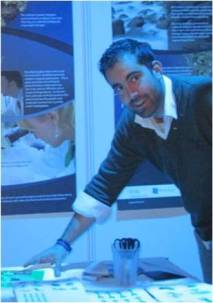Today, I would like to share with you some thoughts regarding the difference between the time lengths that the primary cycle has in different countries.

I am now at a stage in my research where I’m analyzing different curricula of primary level science as I want to investigate for which parts of the curriculum science outreach can be a more valued partner by teachers and schools. This stems from the concept of a third space between science education and science outreach that I mentioned in my third blog. I am not only focusing on the Irish curriculum, I want to compare it with other relevant curricula, so I’m looking as well to curricula from other countries.
In this analysis, one of the issues I’m facing is the differences between countries. It is in one of these differences that I would like to focus today’s blog. The primary level in Ireland lasts for six years, as in other Anglophone countries, as the UK or Australia, among others. In other countries, such as Finland, France or Portugal, the first level has just 4 years. This means that children in the latter countries enter the second level (with its different subjects taught by different teachers) on average, two years younger than in the former countries. This has, of course, several implications. Two major ones immediately come to mind. The first one is a social one. It is a big change for a student the passage from primary to second level. First because of what the primary level teacher represents. She/he is the one with whom one usually spends at least 4 years, every single school day. It is a considerable amount of time, and we all usually remember well our primary teachers. This changes after the primary level. Students then have a multitude of teachers that they see much less of and with whom more often than not they don’t develop the same type of relation. It is a big change. Doing this when you are ten or twelve is not the same, especially in an age where a year’s difference represents so much in terms of personal and social development.
The second major implication is in academic terms. Nowadays the different primary level curricula are emphasizing more different academic fields. Focusing on the one I know best, Science has gained a much bigger relevance in the primary level curricula, especially in the final years. Nevertheless, it is obviously different having a specific science teacher teaching just science: the subject is developed with more depth. Once again, there is a difference starting this division of different subjects 2 years earlier or later.
I must say I have no definite opinion on this issue. It is difficult to say, even with the support of literature, which alternative is best for the students. There are sound arguments on both sides. Just as an example, some argue that curricular dispersion at such a young age is contra-productive whilst others argue it promotes a better learning, as students benefit from having different specialized teachers to help them in their learning. I will now continue to read more on this discussion and I’ll come back to this issue in one of my next blogs. I believe this a very interesting discussion, but even if a definitive argument was made on behalf of one of the options, changing the educational system is not an easy task.
Note: A change of this kind is now being attempted in Portugal, where the new ministry of education accuses the second level educational system of being too diverse. He now plans to cut extensively some of the subjects students have in the 5th and 6th years of their education. But in the case of Portugal, a great number of commentators are arguing the same: this change has very little to do with trying to improve education, and much more with trying to save millions by cutting down the number of teachers….
